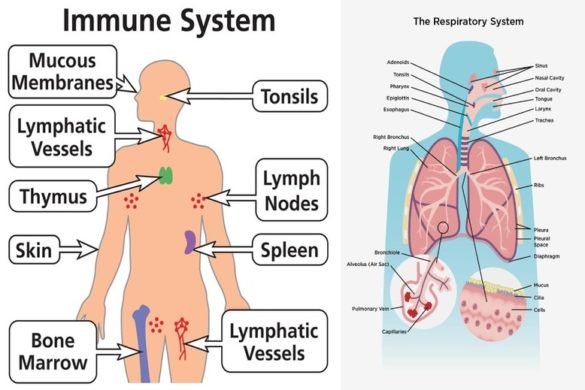Food and Beverage Services can be broadly defined as the process of preparing, presenting and serving food and beverages to the customers. The customer visits the premise to avail of the foodservice. The premises are kept well-equipped and well-finished to attract customers to avail of F&B service.
The food and beverage services sector contributes a great deal to the profits in the hospitality industry. With the increase in the importance of business meetings, a range of personal and social events, a large number of customers visit catering establishments frequently. The food and beverage professionals tirelessly work to intensify customers’ experience through their service.
F&B Services can be of the following two types –
On-Premise – Food is delivered where it is prepared. The customer visits the premise to avail of the foodservice. The premises are kept well-equipped and well-finished to attract customers to avail of F&B service.
For example, restaurants, pubs, etc.
Off-Premise or Outdoor Catering – This kind of service includes partial cooking, preparation, and service at the customer’s premises. It is provided away from the F&B Services provider’s base on the occasion of major events that call for a large number of customers.
INNOVATIVE FOOD & BEVERAGE TRENDS IN 2019
Food and beverage forecasting is not a science, and just like in any art form, trends in the foodservice world are constantly shifting to reflect the changing interests and needs of our guests and consumers. Besides being a fun game, keeping up with these trends is important to F&B directors, hotel or restaurant owners, chefs, baristas, and bartenders—really anyone working in the foodservice industry.
The good news: 2019 is shaping up to be an exciting year for foodies, with all sorts of innovations in ingredients, services, and technology that are reverberating around the world. Here are some of the most intriguing trends that are emerging this year.
FOOD & BEVERAGE TRENDS
Cheese Tea: The Strange New Craze Causing a Stir
How do you take your tea? With milk? Sugar? How about a thick layer of salted cream cheese?
Before you knock it, you should know that cheese tea is poised to be one of the big food trends of 2019, and was dubbed by the New York Times as “the thing you will try against your better judgment”.
The concept, which originated on the streets of Taiwan, worked its way through China, Singapore, Malaysia, and Hong Kong before gaining popularity in the US. What began as tea topped with simple cheese powder has evolved into a thick layer of creamy foam, typically made from a mixture of cream cheese, whipped cream, and milk.
Drinking cheese tea properly is an art form in itself: you can either use a straw or hold your cup and tip it to perfectly mix both the cheese and tea for a flavor that has been compared to tea-infused cheesecake. Admittedly, that last comparison does make this otherwise strange trend seem more palatable.
Flavor Flav: Sour and Complex
We’re seeing flavors and spices from around the world on menus this year! African and Middle Eastern infusions and flavors such as za’atar, harissa, and sumac have been popular food trends for a few years, but in 2019 they’ve taken an even more prominent role.
We’re also tasting lots of sour and complex flavors in Filipino cuisine, which is heavy on vinegar-based marinades and sauces, as well as tart Persian cuisine infused with calamansi, rhubarb, sour oranges, tamarind, and pomegranate.
And from even farther east, sour Korean kimchi flavors have been finding their way into dishes ranging from tacos and quesadillas to mac-and-cheese, and even ice cream!
How to Become a Director of Food and Beverage
Most applicants qualify with a high school diploma and several years of work experience in the foodservice industry as a cook, waiter or waitress, or counter attendant. Some applicants have received additional training at a community college, technical or vocational school, culinary school, or 4-year college.
Education
Although a bachelor’s degree is not required, some postsecondary education is increasingly preferred for many manager positions, especially at upscale restaurants and hotels. Some foodservice companies, hotels, and restaurant chains recruit management trainees from college hospitality or food service management programs. These programs may require the participants to work in internships and to have real-life food industry-related experiences to graduate.
Many colleges and universities offer bachelor’s degree programs in restaurant and hospitality management or institutional food service management. Besides, numerous community colleges, technical institutes, and other institutions offer programs in the field that lead to an associate’s degree. Some culinary schools offer programs in restaurant management with courses designed for those who want to start and run their restaurant.
Most programs provide instruction in nutrition, sanitation, and food preparation, as well as courses in accounting, business law, and management. Some programs combine classroom and practical study with internships.
Work Experience in a Related Occupation
Most food service managers start working in industry-related jobs, such as cooks, waiters, and waitresses, or hosts and hostesses. They often spend years working under the direction of an experienced worker, learning the necessary skills before they are promoted to manager positions.
Training
Managers who work for restaurant chains and foodservice management companies may be required to complete programs that combine classroom instruction and on-the-job training. Topics may include food preparation, sanitation, security, company policies, personnel management, and recordkeeping.
Licenses, Certifications, and Registrations
Although certification is not required, managers may obtain the Food Protection Managers Certification (FPMC) by passing a food safety exam. The American National Standards Institute accredits institutions that offer the FPMC.
Besides, the National Restaurant Association Educational Foundation awards the Foodservice Management Professional (FMP) designation, a voluntary certification to managers who meet the following criteria:
Have supervisory experience in foodservice.
Have specialized training in food safety.
Pass a multiple-choice exam.
The certification attests to professional competence, particularly for managers who learned their skills on the job.
Important Qualities
Business skills:
Foodservice managers, especially those who run their restaurant, must understand all aspects of the restaurant business. They should know how to budget for supplies, set prices, and manage workers to ensure that the restaurant is profitable.
Communication skills:
Foodservice managers must give clear orders to staff and be able to communicate effectively with employees and customers.
Customer-service skills:
Foodservice managers must be courteous and attentive when dealing with patrons. Satisfying customers’ dining needs is critical to business success and ensures customer loyalty.
Detail-oriented:
Managers deal with many different types of activities. They ensure that there is enough food to serve to customers, they maintain financial records, and they ensure that the food meets health and safety standards.
Leadership skills:
Managers must establish good working relationships to maintain a productive work environment. Carrying out this task may involve motivating workers and leading by example.
Organizational skills:
Foodservice managers keep track of many different schedules, budgets, and staff. Their job becomes more complex as the size of the restaurant or foodservice facility increases.
Physical stamina:
Managers, especially those who run their restaurant, often work long shifts and sometimes spend entire evenings on their feet helping to serve customers.
Problem-solving skills:
Managers need to be able to resolve personnel issues and customer-related problems.















